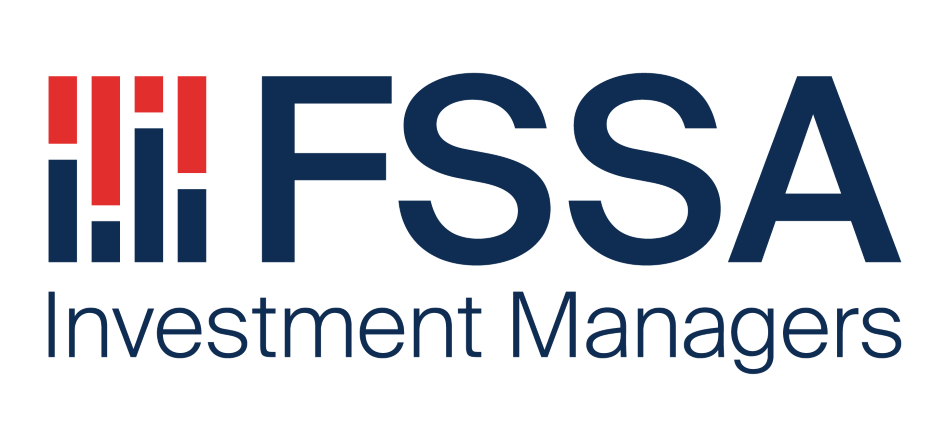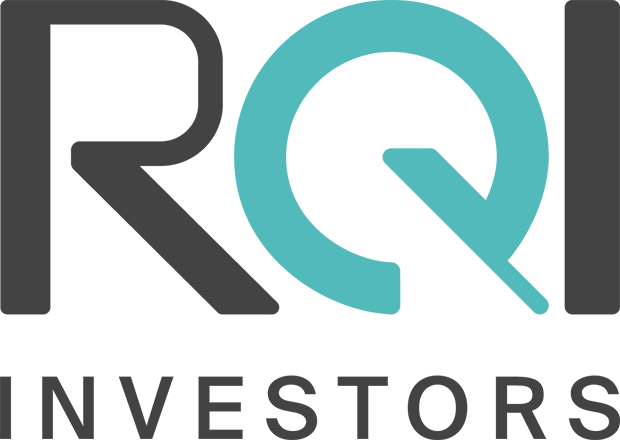Your search returned more than 50 results. The 50 most relevant results are displayed.
We believe that property fundamentals are largely driven by local property factors and have team members located in Asia Pacific, Europe and the United States.
“What COVID-19 has brought about is a newer theme: decentralization. The zoom effect, or remote working, as well as people choosing where they’ll live in the future will have major implications for property.” From residential dwellings to offices and data centres, our Head of Global Property Securities, Stephen Hayes, shares his view on the trajectory for property in a post-COVID world.
The outlook for the global economy and financial markets looks more uncertain today than it has for a long time. Both interest rates and inflation have risen sharply. There is a growing consensus that much of the world will shortly be experiencing slowing economic growth.
Our global property securities team has long invested with the future in mind, based on analysis of the trends redefining the way we live and work. COVID-19 has accelerated trends already in motion and has brought the demise and rise of certain property sectors forward – in fact – we are witnessing what time may prove to be the biggest shift in the evolution of property.
The way that people work, play and live is changing – and some real estate assets will be material beneficiaries of these trends. From data centres to office buildings, Global Head of Property Securities, Stephen Hayes, analyses the changing opportunity set.
Measuring emissions differently has led to some discoveries into new risks and opportunities in the global listed property sector – First Sentier Investors Global Head of Property Securities Stephen Hayes.
The ongoing global outbreak of the Coronavirus (COVID-19) pandemic has seen an extensive sell off permeate financial markets as investors grapple with concerns around how the drastic government and central bank responses to the outbreak will augur for global economic growth. The dramatic sell off in equities across the board has included property securities markets.
Approximately a third of all global carbon emissions come from the real estate sector. Our Head of Global Property Securities, Stephen Hayes, compares new developments with redevelopments and highlights the opportunity set for investors in the coming decade.
The implications of COVID-19 on the real estate sector are divided, with some sectors benefiting from lifestyle changes, while others are paying the price of disruption. Our Head of Global Property Securities, Stephen Hayes, tells us why he is positioning his portfolios around trends such as decentralisation, the falling home ownership rate and the adoption of e-commerce.
While the decarbonisation efforts of Real Estate Investment Trusts (REITs) have advanced reasonably well in the last five years, it’s what happens next that could be most meaningful for investors.
The transition to net zero will have huge implications for global property, but don’t expect the rate of change to be the same across all real estate types and geographies.
Share market sell offs following the major shift in monetary policy last year created opportunities for bargain-hunters in global listed real estate. Select global real estate investment trusts (GREITs) are as cheap as they have been in some time compared to their private market valuations, as measured by the listed segment’s discount to net asset values.
The impacts of interest rate changes on asset values are well understood by financial markets. Typically, for capital intensive assets such as real estate, the access and cost of capital are important contributors to future operating fundamentals.
The Novel Coronavirus (COVID-19) pandemic has seen most financial assets sell-off across the board, including securities in the traditionally defensive listed property sector, as investors grapple with how the drastic government and central bank responses to the crisis will augur for property landlords in the shorter term.
The way we work, commute and shop is changing – and how well our cities adapt to these changes determines how fast land values can rise.
COVID-19 has sent shockwaves through capital markets, and property securities have been no exception. The crisis has plunged the global economy into recession and has given rise to the remote work and learning thematic, while seemingly fasttracking the rise of e-commerce. These well documented trends have rightly called into question the long-term outlook of office buildings and shopping malls, among other types of real estate, which has seen some investment industry pundits subsequently question whether property securities is still a prudent place to gain liquid exposure to real assets. The answer is a profound ‘yes’. In this piece, we explore how the global property securities universe is much more than just office buildings and shopping malls, offering active investors a plethora of compelling investment opportunities in the current environment.
Credit portfolios with genuine Environmental Social and Governance (ESG) integration could be a canary in the coal mine for potentially difficult-to-quantify risks and opportunities, including those likely to stem from climate change and the energy transition. While governments globally move at different speeds to put in place net zero policies, ESG-focused credit investors are taking decisive, early action to reflect these factors in their portfolio allocations.
COVID-19 has created a challenging environment for income reliant investors, with interest rates near all-time lows and expected to remain there for the foreseeable future, while in equity markets, even the most reliable dividend payers are facing mounting pressure on their dividend policies over the short to medium term.
Borrowing to invest has amplified the wealth of property investors over many decades. But negative annual returns have become more frequent from residential property over the last 15 years.
Our global property securities team share their macro outlook before diving into two sectors to watch in 2021; purpose-built healthcare facilities and residential-for-rent buildings including apartments, detached housing and manufactured homes.
As the renter market in the United States continues to grow, so does the opportunity for investors in a certain type of Real Estate Investment Trust.
Tap into a relatively stable investments in real assets, infrastructure, property and essential services we all rely upon.
Now that more than 18 months have passed since COVID-19 started sweeping the world, we have a good understanding of how the pandemic has affected real estate investments. In some ways, it has changed the game. In other ways, it has simply underlined a number of trends that were already shaping the sector. These ‘megatrends’ will likely cross decades and decades, and have big implications for real estate – boosting some sectors and disrupting others. Below is a snapshot of the trends that have shaped 2020/21, and how we see them for the coming decade.
Facing our largest deficit since 1945, the question is how has the Federal Government set Australia’s course for the next decade. While the focus of the budget stimulus is aimed at mitigating some of the economic risks, our debt is forecast to climb to 44% of GDP by 2024 – a level inconsistent with a AAA credit rating.
Investing in property securities provides investors with an opportunity to exploit trends in various property sectors through the listed property trust market, without the significant transaction costs that typically apply when investing in direct property.
As more carbon emission regulation comes in globally – as we expect it will – Real Estate Investment Trusts (REITs) with emission reduction plans are likely to be better-placed than their peers as the cost of carbon increases.
The concept of gearing an investment is not foreign to Australian investors. Of course, one of the nation’s favourite past times is to debate the pros and cons of negative gearing.
Office real estate is undergoing a fundamental shift, while COVID-19 has accelerated a number of global real estate investment trends, including the continued growth and adoption of e-commerce and falling home ownership.
Read regular news updates, research papers, investment strategy updates and thought pieces from our leading investment experts.
With strong long term growth prospects and a track record of resilience through economic downturns, this increasingly institutionalised property sector is a defensive play for investors.
Digital transformation, cost cutting through operational efficiency, scalability and Covid safety. These four themes have been key drivers in almost every industry, which has been reflected in the gravity of changes we have seen as industries have evolved. The hospitality industry is facing disruption from a new consumer trend driving an insurgency of ‘ghost kitchens’ – and this has implications for property investors.
What could be better than tapping into the boom in tertiary education while also reducing exposure to economic risk? Student accommodation has been a fast growing property sector as it satisfies investor demands for more growth and less risk. This piece looks at a recent transaction in this sector in the UK and highlights why student accommodation has investor appeal.
Investors with an ESG focus can take a lot from leading and technologically resourceful real estate companies in the world’s largest office market as they move quickly on their renewable energy targets. Moves by two of Japan’s larger landlord-developers to accelerate green and energy efficient operation and development shows the direction forward-thinking companies in the property sector are taking. Mitsubishi Estate and Mitsui Fudosan, both listed companies actively engaged in development and as landlords, are examples of companies globally finding new pathways to carbon emissions reduction.
Now available on demand: Adviser Roadshow 2023
At First Sentier Investors, the Global Property Securities team is taking a proactive approach to decarbonising our portfolio of Real Estate Investment Trusts (REITs) by setting a net zero emissions target. The REIT sector’s total assets are valued at over US$2 trillion , and as some of the largest landlords in the world, they have clear duty of care to help fight climate change. We have undertaken extensive analysis of our REIT portfolio using sophisticated models, developed in-house, and we are allocating our capital to landlords who are committed to emissions reduction. In this way, we believe real estate investors can play an important part in addressing climate change.
Head of Global Property Securities Stephen Hayes: Global city populations continue to grow, driven by urbanisation. The provision of housing for growing populations is a major challenge for many countries and cities. Adequate housing is a factor that influences a city’s mobility of labour, social wellbeing and commerce levels. Government housing policies are typically viewed holistically with policies covering social, private and rental housing. New supply is not always efficient and can be problematic particularly in densely populated cities.
We consider ESG risks to be factors that may place business value at risk. Companies at risk are identified using both external providers and our own internally driven research, which is based on a systematic and extensive company meeting program.
First Sentier Investors is the world-leading provider of specialist investment capabilities. Discover how we provide research-led active investment management.
In volatile times, diversification is more important than ever – across – but also within asset classes. Deputy Head of Australian Equities Growth, David Wilson, looks at how to diversify an Australian share exposure.
East Cermak has over 1.1 million square foot of gross lettable area and draws on over 100 megawatts of power from three separate grids. To put its power output in perspective, it’s the equivalent of the amount of power used by 100,000 households.
People are are at the heart of our success as a leading global asset manager
Global investment manager, First Sentier Investors, today announced changes to its investment capabilities within Australia.
Global asset management group focused on providing high quality, long-term investment capabilities to clients. We bring together independent teams of active, specialist investors who share a common commitment to responsible investment principles.
Demand has remained strong across airports and toll roads globally. This strong demand seems somewhat counter-intuitive to the uncertain economic outlook and significant cost of living pressures throughout the world.
First Sentier Investors, a leading global investment manager is pleased to announce the appointment of Adele Swan as the new Chief People and Culture Officer, effective 24 June. Ms Swan is based in Edinburgh, reporting to the CEO, Mark Steinberg.
Marked changes occurring within global housing markets with a defined long-term trend from home ownership to rental accommodation, as housing affordability has become a major issue for younger generations and as the aspiration to own a home has waned with priorities shifting towards lifestyle and experiences.
2024 was a year marked by global inflation and economic growth concerns against a backdrop of worldwide elections. As we head into 2025, volatility will remain an enduring constant.
Firstly, regulations are nothing new — it has always been a part of the investment equation. If we look at Hong Kong or Singapore for example, the government would introduce new regulations on the property market from time to time; and in China, the government has introduced a number of new regulations for banks and insurance companies over the years. In fact, last year the government changed the pricing policy on automobile insurance, affecting quite a few Chinese general insurers. Therefore, regulation risk is always something to consider. Secondly, we believe the Chinese government has indeed changed — in terms of their priorities and focus — over the last three to four years. China was particularly focused on economic growth previously; and by all accounts, China has been a major economic miracle. From poverty, it has become the second-largest economy in the world. However, in recent years under the leadership of President Xi Jinping, the Chinese government has started to focus much more on social stability and equality. Thus, the underlying spirit of the recently announced regulations seems to be targeting wealthy entrepreneurs and conglomerates. The goal is to help improve the lives of workers, for parents to ease their burden with children, and so forth. Then, there is the environmental aspect too, with the Chinese government increasingly focused on pollution and carbon neutrality. From that perspective, it certainly looks like the Chinese government is becoming more socialist than it was before. I think that is the trend and to some extent, investors will need to acknowledge and accept it when investing in China.
First Sentier Investors recently presented at the Responsible Investment Association Australasia (RIAA) annual conference and hosted a design lab on how responsible investors can shape the future of Electric Vehicles (EV). This paper outlines the key challenges for EV acceptance, analyses the rollout of EV charging infrastructure around the world, and considers practical ideas for investors to super-charge the uptake of EV.
Australia has fewer homes per adult than most of the developed world. First Sentier Investors Head of Global Property Securities Stephen Hayes is joined by Stockland Development CEO Andrew Whitson to unpack the challenges in meeting Australia’s growing housing demand – and where growth may emerge next.
Get the right experience for you
Your location :  Australia
Australia
Australia & NZ
-
 Australia
Australia -
 New Zealand
New Zealand
Asia
-
 Hong Kong (English)
Hong Kong (English) -
 Hong Kong (Chinese)
Hong Kong (Chinese) -
 Singapore
Singapore -
 Japan
Japan























 United Kingdom
United Kingdom 